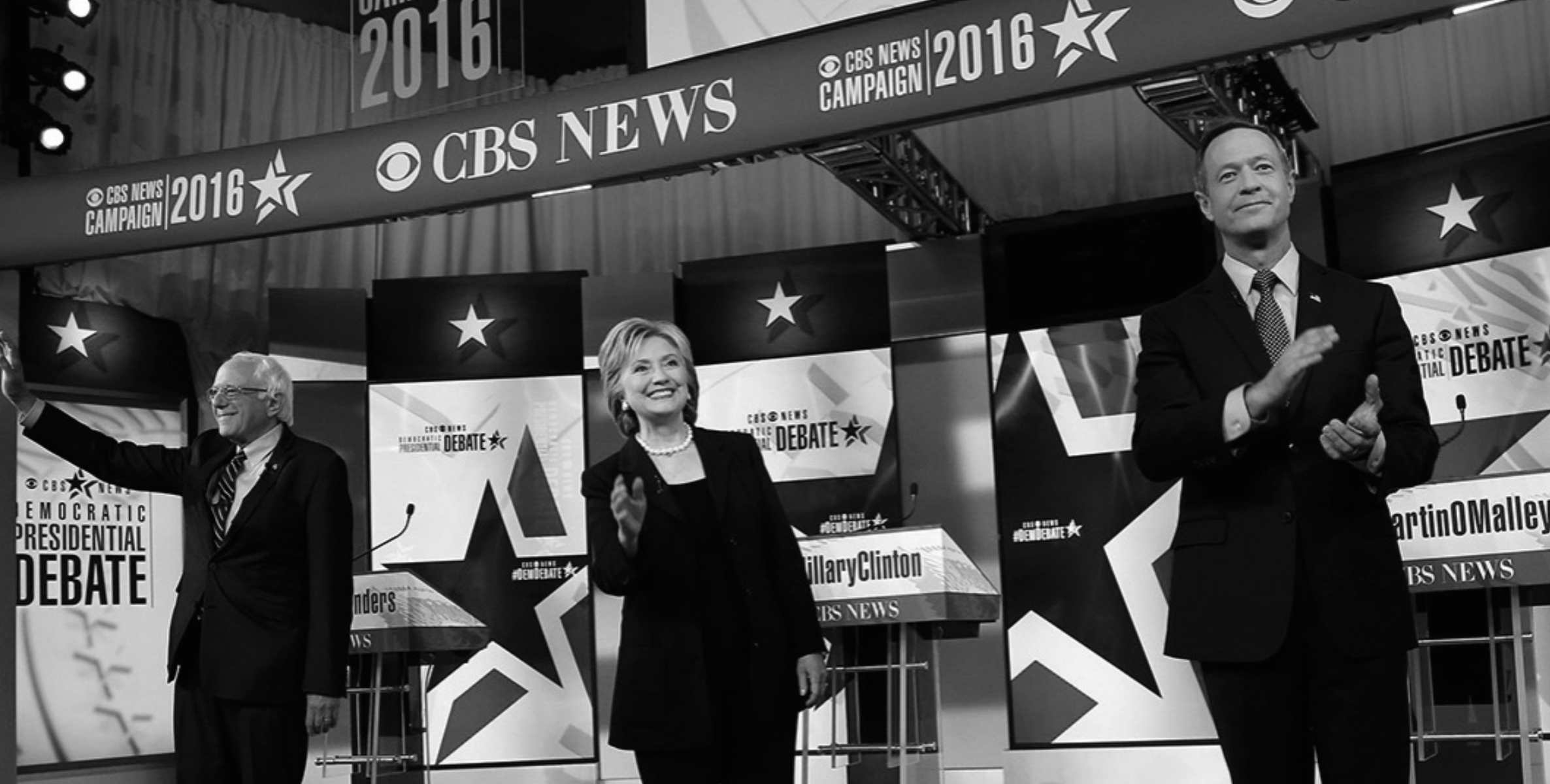The second Democratic Primary Debate took place this past Saturday November 14th, just one day after deadly terrorist attacks in Beirut and Paris collectively killed close 200 people. Despite security concerns, the debate went ahead as planned with Hillary Clinton, Ber- nie Sanders and Martin O’Malley as the three remaining Democratic candidates. Unlike the first debate, where Clinton dominated and only strengthened her lead in the polls, the second debate was murkier. A a CBS post-debate poll showed Clinton winning the debate with 51% of the vote, compared to Sand- ers 28%, with O’Malley at just 7%. However the U.S. Media seemed less sure of Clinton’s success due to multiple gaffes on domestic and financial policy. The media could agree on only one thing; modera- tor John Dickerson, anchor of CBS’ “Face the Nation”, had the strongest showing of any debate moderator so far.
The debate was dominated by questions centered on the threat of Daesh (ISIS) and terrorism as a whole. Sanders was weakest in this area of foreign policy. He did not have a response to how he would handle the Paris attacks other than his condolences for the victims. Ac- cording to the Washington Post, this was a missed chance for Sand- ers to impress viewers on his for- eign policy credentials.
According to Politico, O’Malley also suffered from the foreign pol- icy focus in the debate. Moderator John Dickerson asked O’Malley, “is the world too dangerous for a governor with no foreign policy experience?” O’Malley struggled in answering. Clinton had the strongest showing on foreign policy questions; a CBS post-debate poll showed that 60% of Democrats and independents watching the debate felt she would do the best job on foreign policy. Clinton’s strength is unsurprising considering her past experience as U.S. Secretary of State. Republican candidates on Twitter, and some other media out- lets, blasted Clinton and her fellow candidates for not using the term “Radical Islam” to describe the Par- is attacks.
Domestically, as was the case in the first debate, Sanders had the strongest showing. As stated by the Washington Post, Sanders rhetoric and policy plans for ending crony capitalism and fixing income in- equality earned high marks from the audience and viewers. It was on these issues that Hillary Clinton made her biggest mistake of the night. She may have been the clear- cut winner of the debate, if not for making a connection between the tragedy of 9/11 and the influx of donations that her campaign received from large financial cor- porations. Clinton stated that she helped Manhattan and Wall Street rebuild after the 9/11 attacks and
that was why they gave her large financial donations to support her campaign. The answer sounded out of touch, callous and simply unbe- lievable to many viewers, especially on social media. Clinton defended these remarks during and after the debate, fending off accusations that she used 9/11 victims as a tool to defend her donations. Sanders chose not too hit back particularly hard, instead stating that regardless ofwhatshedidinNewYorkasa Senator, the banks are too big now and must be broken up.
Although Clinton polled well af- ter the debate, her remarks on 9/11 may come back to haunt her in later debates or in the general election, if she secures the nomination. Instead choosing her as the clear winner, the media picked another victor; moderator John Dickerson.
NPR’s Ron Elving said Dicker- son “had a fair minded but bracing question for each candidate,” while the Washington Post listed him as one of the major winners in the debate. The next debate takes place Saturday December 19th. It will be interesting to see who is still on the stage, with Sanders and Clinton polling ahead of O’Malley by double digits.



